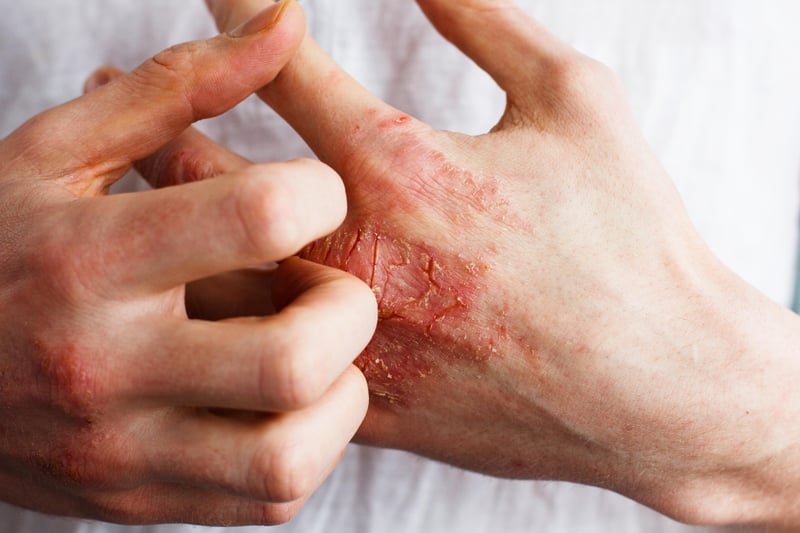Get Healthy!

- Cara Murez
- Posted October 2, 2022
Are Your Hands Just Dry, Or Is It Eczema?
Sometimes that irritated skin on your hands is more than simple dryness.
Hand eczema could be the culprit, with painful dry and itchy skin on all or part of the hand and fingers.
"If your hands are extremely dry and painful, and using moisturizer throughout the day is not helping to relieve them, you may have hand eczema," said Dr. Dawn Davis, a pediatric and adult dermatologist at the Mayo Clinic in Rochester, Minn. "Without the proper treatment and preventive measures, hand eczema may worsen."
Eczema might look like patches of red, dark brown, purple or gray irritated skin, according to the American Academy of Dermatology. It can be scaly, inflamed and itchy. It can feel like it's burning or include itchy blisters and deep, painful cracks, as well as crusts, pus and bleeding or weeping skin.
"Hand eczema can flare from a variety of triggers," Davis said in an academy news release. "Some patients will see increased irritation in cooler, dry temperatures, while for others the condition may worsen during warmer months due to sweating. A trigger or flare for one patient could be different than flares or triggers for other patients."
Flare-ups can arise from not properly drying wet hands or an allergic reaction, such as to latex or jewelry metals. People who had eczema (atopic dermatitis) as a child have a higher risk of developing hand eczema. Chemicals like solvents, detergent and cement can increase risk.
Prevent flare-ups by using a gentle hand or hypoallergenic cleanser, not washing too frequently and making sure to rinse off any excess cleanser, Davis said. Rinse well between the fingers where cleanser can accumulate.
Also, gently pat hands dry with a towel instead of air drying, she suggested. Use fragrance-free creams and ointments instead of lotions.
"At the core of all eczema treatments is a sensitive skin care routine," Davis said. "It's important to note that patients with hand eczema may also have foot eczema. They're parts of the body that we use often and as such are often exposed to harm from our environment and the chemicals and objects we use in our daily lives. They both have thick skin along the palms and soles, which protect the skin, but can also be difficult to hydrate."
It may help to apply petroleum jelly to the affected area before bed or a thick moisturizer often throughout the day, Davis said.
Also, wear gloves when you might encounter irritants.
Some people with eczema will use a vinegar soak, which is also called an acetic acid dressing solution.
"After making the solution, the patient soaks a washcloth in the mixture, wrings it out, rolls the washcloth around their hand like a burrito, and then puts a white tube sock over their hand for several hours or before going to bed," Davis said.
A dermatologist can also offer advice and treatments.
"It is important that people seek treatment for hand eczema so their skin doesn't get infected, which can lead to cellulitis, a common, potentially serious bacterial skin infection," said Davis.
"If you suspect that you have hand eczema and at-home treatments fail to bring you relief, make an appointment to see a board-certified dermatologist," she recommended.
More information
The National Eczema Association has more on hand eczema.
SOURCE: American Academy of Dermatology, news release, Sept. 27, 2022







